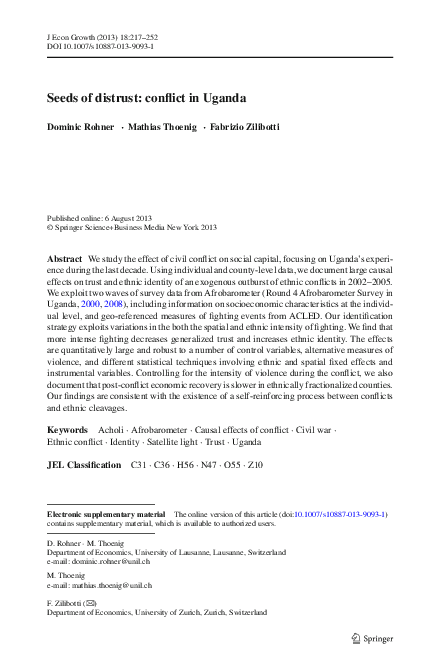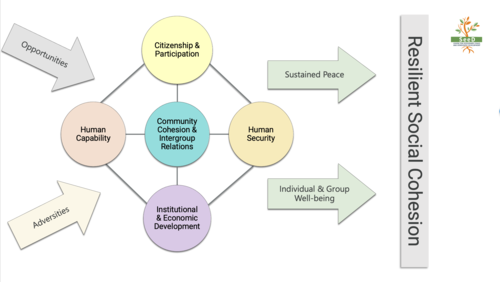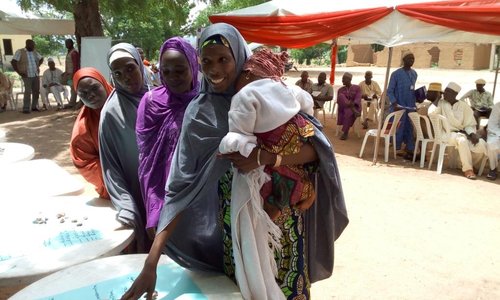Seeds of distrust: conflict in Uganda
Key facts
Identity/feeling of belonging
Summary
We study the effect of civil conflict on social capital, focusing on Uganda’s experience during the last decade. Using individual and county-level data, we document large causal effects on trust and ethnic identity of an exogenous outburst of ethnic conflicts in 2002–2005. We exploit two waves of survey data from Afrobarometer (Round 4 Afrobarometer Survey in Uganda, 2000, 2008), including information on socioeconomic characteristics at the individual level, and geo-referenced measures of fighting events from ACLED. Our identification strategy exploits variations in the both the spatial and ethnic intensity of fighting.We find that more intense fighting decreases generalized trust and increases ethnic identity. The effects are quantitatively large and robust to a number of control variables, alternative measures of violence, and different statistical techniques involving ethnic and spatial fixed effects and instrumental variables. Controlling for the intensity of violence during the conflict, we also document that post-conflict economic recovery is slower in ethnically fractionalized counties. Our findings are consistent with the existence of a self-reinforcing process between conflicts and ethnic cleavages.





